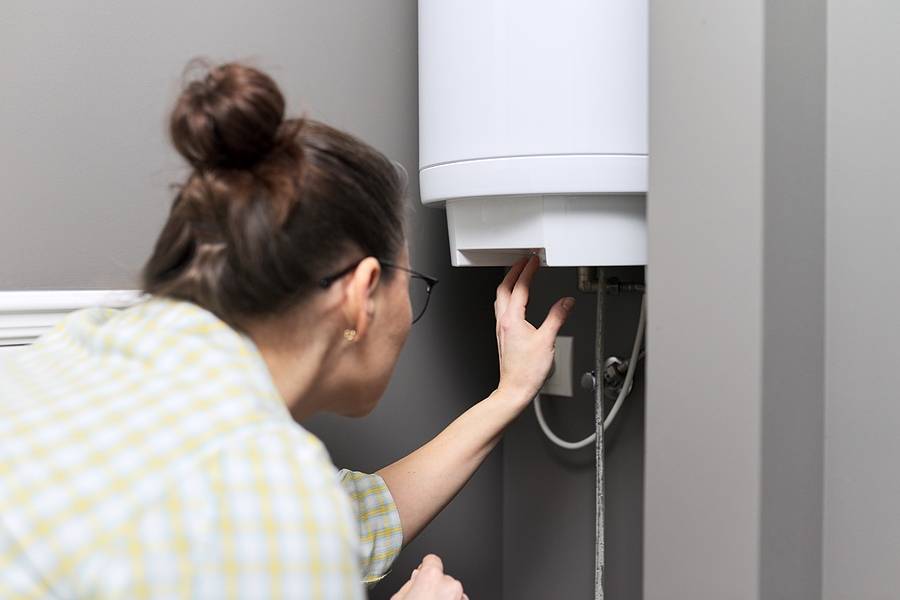We might not actively appreciate it, but water heaters play a crucial role in bathing, laundry, cooking, and cleaning. With the many types of water heaters and components involved, it's not surprising that people have a ton of questions about selecting, installing, operating, maintaining, repairing, and replacing water heaters. In this brief article brought to you by Proline Rooter, we’ll touch on the top 10 frequently asked questions. If your curiosity is not satisfied here, then feel free to call Proline Rooter to consult with a trained plumber.
There are several types of water heaters, including tankless (on-demand), storage tank, heat pump, and solar water heaters. Each type has its own efficiency characteristics.

Tankless heaters are energy-efficient as they only heat water when needed, while storage tank heaters continuously maintain a reservoir of hot water. Heat pump water heaters extract heat from the air or ground, and solar water heaters utilize the sun's energy. Selecting the most efficient type depends on your specific needs, budget, and available resources.
The ideal size of a water heater depends on factors such as the number of occupants in the household and your hot water demands. To estimate the required size, consider the First Hour Rating (FHR) and gallons per minute (GPM) of the water heater. FHR indicates the amount of hot water the unit can provide in the first hour, while GPM represents the flow rate.
Regular maintenance is essential to ensure the optimal performance and longevity of a water heater. Tasks include flushing the tank to remove sediment, checking the anode rod for corrosion, inspecting the pressure relief valve, and examining the heating elements.
Maintenance should ideally be performed annually, but consult the manufacturer's guidelines and seek professional advice for a more accurate maintenance schedule.
You can maximize the life expectancy of your water heater with regular maintenance and proper care. Additionally, installing a water softener can prevent mineral buildup, adjusting the thermostat to a moderate temperature can reduce stress on the unit, and ensuring proper ventilation around the heater can enhance its efficiency and longevity.
Signs of a failing water heater include inadequate hot water, unusual noises, leaks, and rust-colored water. If your unit is over 10 years old and experiencing multiple issues, it might be more cost-effective to replace it rather than continuously repairing it. Upgrading to a more energy-efficient model can also be a wise investment in the long run.
While some homeowners with plumbing skills may be able to install a water heater, it is generally recommended to hire a professional plumber. Improper installation can lead to safety hazards, leaks, reduced efficiency, and even a damaged water heater. Professionals ensure that the unit is correctly installed in accordance with local building codes and safety standards.
Insulating the hot water pipes, installing a timer or programmable thermostat, setting the thermostat to a lower temperature (around 120°F or 49°C), and considering a more energy-efficient model like a tankless or heat pump water heater are all ways to improve the energy efficiency of a typical water heater.
A leaking water heater is a serious issue that requires immediate attention. Turn off the power supply and gas valve (if applicable) and shut off the water supply. Identify the source of the leak, which could be anything from a loose connection or a faulty valve to a corroded tank. If the issue is beyond a simple fix, seek professional plumbing repair service as soon as possible.
Draining and flushing your water heater is an essential maintenance task. Turn off the power supply and gas valve, connect a garden hose to the drain valve, and open the valve to allow sediment and debris to flush out. Repeat the process until the water runs clear. Be cautious because the water can be hot, and consult your user manual or a professional if you're unsure.
Yes, it is possible to integrate a traditional water heater with a solar water heating system. This hybrid approach utilizes solar energy as the primary source and the conventional water heater as a backup during periods of low solar input. This setup can enhance energy efficiency and provide a reliable hot water supply, combining the benefits of both systems.
If you need reliable and affordable water heater repair, then call Proline Rooter to hire a trained and uniformed plumber. Our team is on standby to take your call at any time of the day.
When it comes to plumbing, the jargon can often sound like a different language. One term you might encounter…
Water is the essence of life, and having clean, safe drinking water is something many of us take for…
Read More Jul 11,2024Garbage disposals are a staple in more than half of U.S. kitchens, diligently working to keep our drains free…
Read More Jul 08,2024If you have a gas-powered water heater working to provide you with hot showers and warm baths, then…
Read More Jun 27,2024